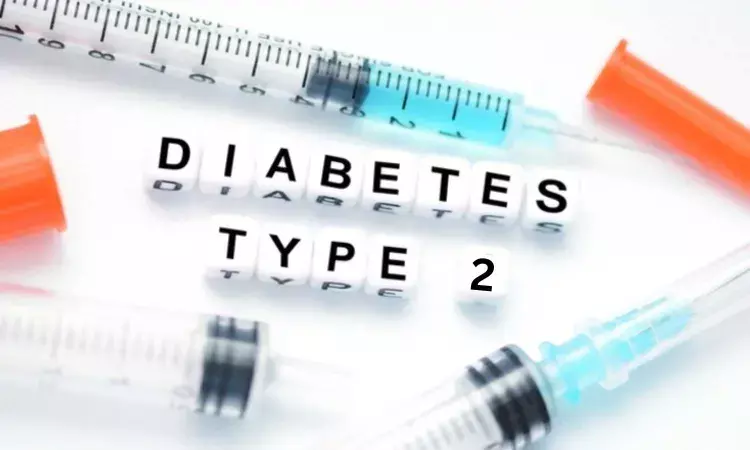- Home
- Medical news & Guidelines
- Anesthesiology
- Cardiology and CTVS
- Critical Care
- Dentistry
- Dermatology
- Diabetes and Endocrinology
- ENT
- Gastroenterology
- Medicine
- Nephrology
- Neurology
- Obstretics-Gynaecology
- Oncology
- Ophthalmology
- Orthopaedics
- Pediatrics-Neonatology
- Psychiatry
- Pulmonology
- Radiology
- Surgery
- Urology
- Laboratory Medicine
- Diet
- Nursing
- Paramedical
- Physiotherapy
- Health news
- Fact Check
- Bone Health Fact Check
- Brain Health Fact Check
- Cancer Related Fact Check
- Child Care Fact Check
- Dental and oral health fact check
- Diabetes and metabolic health fact check
- Diet and Nutrition Fact Check
- Eye and ENT Care Fact Check
- Fitness fact check
- Gut health fact check
- Heart health fact check
- Kidney health fact check
- Medical education fact check
- Men's health fact check
- Respiratory fact check
- Skin and hair care fact check
- Vaccine and Immunization fact check
- Women's health fact check
- AYUSH
- State News
- Andaman and Nicobar Islands
- Andhra Pradesh
- Arunachal Pradesh
- Assam
- Bihar
- Chandigarh
- Chattisgarh
- Dadra and Nagar Haveli
- Daman and Diu
- Delhi
- Goa
- Gujarat
- Haryana
- Himachal Pradesh
- Jammu & Kashmir
- Jharkhand
- Karnataka
- Kerala
- Ladakh
- Lakshadweep
- Madhya Pradesh
- Maharashtra
- Manipur
- Meghalaya
- Mizoram
- Nagaland
- Odisha
- Puducherry
- Punjab
- Rajasthan
- Sikkim
- Tamil Nadu
- Telangana
- Tripura
- Uttar Pradesh
- Uttrakhand
- West Bengal
- Medical Education
- Industry
Optimization of anti diabetic treatment and Patient education prevents emergency glycemic crisis in diabetes patients

A new study published in the Medicine Journal suggests optimization of anti-diabetic therapy and education of patients to avoid acute glycemic crises and physicians must be aware of the underlying causes (interrupted treatment) of acute glycemic crises and provide appropriate management
Despite advances in the treatment of diabetes mellitus (DM), severe acute glycemic crises still occur and are associated with high morbidity and mortality rates. In this study, Keisuke Endo and peers investigated the characteristics of patients who were transported to an emergency department due to acute glycemic crises.
The study enrolled patients who were transported by ambulance to a hospital due to hypoglycemia or hyperglycemia between January 2015 and December 2019. Patients with initial glucose levels below 70 mg/dL and above 250 mg/dL were defined as having hypoglycemia and hyperglycemia, respectively.
During the five-year study period, 16,910 patients were transported to the hospital by ambulance. Of these patients, 87 (0.51%) were diagnosed with hypoglycemia, 26 (0.15%) were diagnosed with hyperglycemia, and 1 patient was diagnosed with lactic acidosis.
Patients with hyperglycemia were younger, more likely to be hospitalized, and had a poorer prognosis than those with hypoglycemia. The main reasons for hyperglycemia were interrupted treatment, forgetting insulin injection, and infection.
The study revealed that the main causes of hypoglycemia in non-DM patients were excessive alcohol intake and malnutrition.
In DM patients with hypoglycemia, inappropriate medication was often used. The blood urea nitrogen, serum potassium, and hemoglobin levels were higher in patients with hyperglycemia, whereas the systolic blood pressure was lower and the pulse rate was higher in patients with hyperglycemia.
This study highlights the importance of identifying the underlying causes of acute glycemic crises and optimizing anti-DM therapy to avoid their occurrence. Furthermore, patients should be educated on how to recognize the symptoms of hypoglycemia and hyperglycemia, how to monitor their glucose levels, and how to manage their medication properly.
Source:
Endo, K., Itoh, T., Tanno, M., Ohno, K., Hotta, H., Kato, N., Matsumoto, T., Ooiwa, H., Kubo, H., & Miki, T. (2021). Characteristics of patients with emergency attendance for severe hypoglycemia and hyperglycemia in a general hospital in Japan. In Medicine (Vol. 100, Issue 25, p. e26505). Ovid Technologies (Wolters Kluwer Health). https://doi.org/10.1097/md.0000000000026505
Dr Kartikeya Kohli is an Internal Medicine Consultant at Sitaram Bhartia Hospital in Delhi with super speciality training in Nephrology. He has worked with various eminent hospitals like Indraprastha Apollo Hospital, Sir Gangaram Hospital. He holds an MBBS from Kasturba Medical College Manipal, DNB Internal Medicine, Post Graduate Diploma in Clinical Research and Business Development, Fellow DNB Nephrology, MRCP and ECFMG Certification. He has been closely associated with India Medical Association South Delhi Branch and Delhi Medical Association and has been organising continuing medical education programs on their behalf from time to time. Further he has been contributing medical articles for their newsletters as well. He is also associated with electronic media and TV for conduction and presentation of health programs. He has been associated with Medical Dialogues for last 3 years and contributing articles on regular basis.
Dr Kamal Kant Kohli-MBBS, DTCD- a chest specialist with more than 30 years of practice and a flair for writing clinical articles, Dr Kamal Kant Kohli joined Medical Dialogues as a Chief Editor of Medical News. Besides writing articles, as an editor, he proofreads and verifies all the medical content published on Medical Dialogues including those coming from journals, studies,medical conferences,guidelines etc. Email: drkohli@medicaldialogues.in. Contact no. 011-43720751


